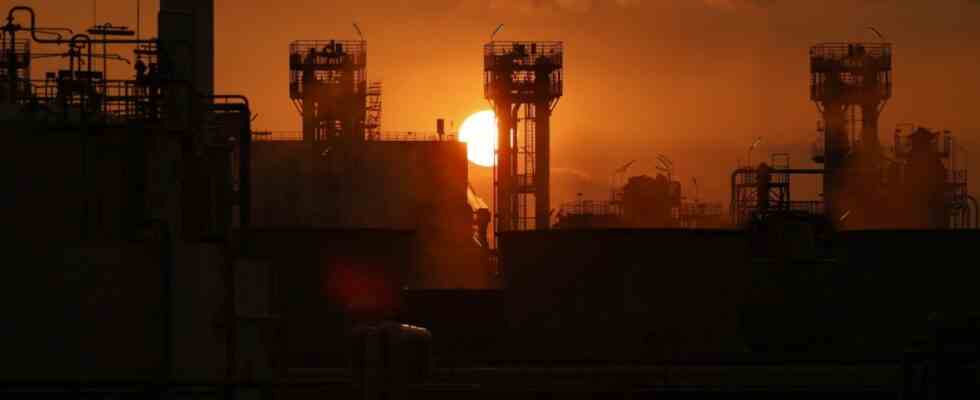Christian Kullmann is always up for a bold statement – and on Thursday the traffic light coalition in Berlin was the target of his attacks. The 53-year-old is head of the Essen-based specialty chemicals group Evonik; until autumn he was also President of the Association of the Chemical Industry. Now the manager reported on a difficult fiscal year 2022 for Evonik and gave a cautious outlook for the current year. The industry is suffering greatly from the high energy prices, and Kullmann therefore called for politicians to give the economy more planning security on the subject. He complained about “Sunday speeches” and a “provincial peasant polka” in Berlin: the coalition partners argued instead of concentrating on strengthening Germany as a business location in competition with the USA or China.
Germany could be one of the winners worldwide when it comes to the green change in industry, but decisions must be made more quickly and more work done, said the CEO: “We will have to work harder.” Evonik, for example, does 80 percent of its business abroad, but 60 percent of its 34,000 employees are still in Germany: “We have to do a lot to keep it that way.” Kullmann tries to spread risks when investing abroad – because of the “geopolitical uncertainties”, i.e. the tensions between the USA and China. Evonik announced just this week that one Battery materials factory expand in Japan. In February, in turn, the group had announced in a Chinese battery company to invest.
The dividend at Evonik should remain unchanged despite the lower surplus
In the past year operating profit increased slightly to 2.5 billion euros despite the high energy prices, which is the best result in ten years. Sales even increased by a quarter. But that was only because the group had passed on the higher costs for raw materials and energy to customers. Evonik therefore charged higher prices, while the volumes sold actually fell. The company manufactures specialty chemicals that are used in car tires, mattresses, diapers and pet food. Evonik also supplies so-called lipids for the Covid vaccines.
The bottom line is that the Essen-based MDax group only posted a profit of 540 million euros, a quarter less than in 2021. This was due to depreciation in a division that Kullmann wants to sell. The manager wants to focus the company on chemicals, where demand is less volatile and profit margins are higher. In addition, production at Evonik and the products are to become more climate-friendly.
Despite the lower surplus, the dividend should remain unchanged at EUR 1.17 per share. The RAG-Stiftung, the majority owner, will be happy about that. The foundation is responsible for financing the legacy of coal mining, such as pumping water out of the tunnels. Evonik was founded in 2007 as a spin-off from RAG AG, formerly Ruhrkohle AG.
For the current year, Kullmann expects slightly less operating profit. He also announced an austerity program that should reduce costs by 250 million euros. However, no layoffs are planned. Last week, the world’s largest chemical company, BASF, announced details of its austerity program. The company wants to cut 2,600 jobs, two-thirds of them in Germany.
The Covestro numbers are “the worst result that we could imagine”
Just like BASF or Evonik, the Leverkusen-based plastics producer Covestro is suffering from high energy prices. CEO Markus Steilemann said at the Presentation of business figures on Thursday, 2022 was a “year of polycrisis with unprecedented challenges”. At the Dax group, which was spun off from Bayer in 2015, operating profit was halved, and the bottom line was a loss of a quarter billion euros due to depreciation. As a result, the company, which has 18,000 employees worldwide, will not be paying a dividend this year.
Company boss Steilemann, who also heads the Association of the Chemical Industry as Kullmann’s successor, said that Covestro had cut costs and energy consumption. Nevertheless, the board expects operating profit to continue to fall in the current year, and significantly so. Arne Rautenberg, manager at the fund company Union Investment, called the figures “pretty much the worst result that we could imagine for Covestro”. His disappointment was apparently shared by many investors: the share was the biggest daily loser in the Dax stock market index.

